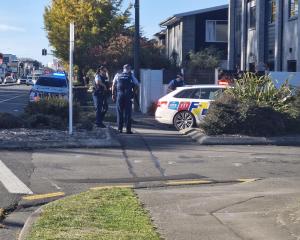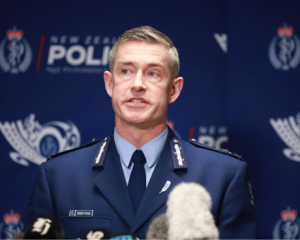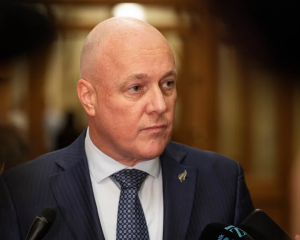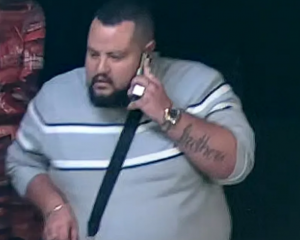There is no wriggle-room in the country's legislation that would allow doctor-assisted death to be lawful, a court has been told today.
The only way for the practice to fit in the legal framework was for politicians to change legislation, the Crown said in a civil case in the High Court at Wellington, which is looking at clarifying the law around doctor-assisted death.
However, the team representing a woman fighting to have the option of dying before a brain tumour leaves her in an undignified state before her inevitable death, said the law was open to interpretation.
Both Lecretia Seales's lawyers and Solicitor-General Mike Heron QC gave opposing submissions to Justice David Collins today.
Mr Heron QC told the judge the issue was controversial, unethical and by no means permissible within the law.
"The current law applies to all. Its purpose is to protect the sanctity of life and the vulnerable," he said.
The sanctity of life was a fundamental principle of the common law, Mr Heron submitted.
"The principle recognises that human life is a basic, intrinsic good.
"The right not to be killed is enjoyed regardless of inability or disability."
Ms Seales, a former lawyer, is dying from an inoperable brain tumour and wants the option to be able to ask her doctor to help end her life should her symptoms become unbearable.
The 42-year-old's case relies on provisions in the Bill of Rights Act enshrining the rights to not be deprived of life or subjected to cruel treatment.
One of Ms Seales' legal team Andrew Butler said whatever suicide was defined as, that was not what his client was doing.
"What she is doing is exercising her Bill of Rights rights."
Earlier today, another of Ms Seales' team, Chris Curran, argued it should be legal for a doctor to change a saline solution from saline to a lethal substance.
The action would be in the context of a therapeutic relationship that would negate any assault, grievous bodily harm or poisoning charge, Mr Curran said.
"Context is what's important in determining whether a substance is noxious."
Doctor-assisted euthanasia "prolonged life", because in the case of Ms Seales, if she did not have that option, she would be forced to take her life prematurely while she was still physically able to, he said.
"It is dehumanising and devaluing for Lecretia to explore a secretive and lonely death," Mr Curran said.
Ms Seales was not present for today's court session.
Yesterday she attended periodically throughout the day, sitting in a wheelchair next to her mother and husband Matt near the front of the court, often with her eyes closed while she listened to her lawyers' submissions.
The public gallery was again packed for today's hearing and a handful of Ms Seales' supporters were seated in the jury box.
The hearing is expected to finish tomorrow.
- By Rebecca Quilliam of NZME.












